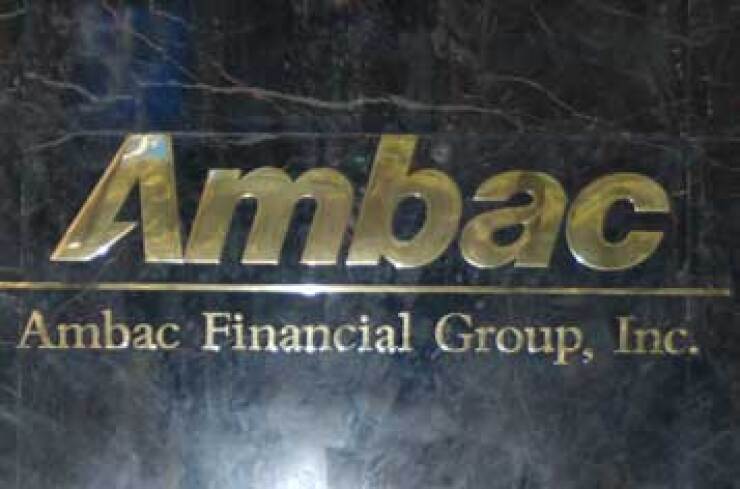
CHICAGO - Detroit has agreed to give its limited-tax general obligation bondholders a say in negotiations with holders of $1.4 billion of disputed pension certificates, one of the most controversial aspects of the city's bankruptcy case.
The LTGO creditors would recover 34% of their debt under the terms of the deal, up from 10% initially offered by the city. They would get additional money if the bankrupt city successfully repudiates the $1.45 billion of pension certificates of participation.
The move pits bond insurers against each other for the first time in the case. It gives the city more ammunition in its battle against Syncora Guarantee Inc. and Financial Guaranty Insurance Co.., which wrap the pension certificates and have mounted the most aggressive campaigns against the city's bankruptcy exit plan to date.
The city's fifth amended confirmation plan reveals some of the terms of the LTGO deal. The settlement was reached more than six weeks ago, but terms of the deal were not made public until Friday.
The 34% repayment is among the lowest recoveries so far in the Chapter 9.
In a statement released Friday, Ambac confirmed the terms, saying it has finalized the settlement.
The agreement calls for the issuance of new LTGO notes equivalent to 34% of the LTGO allowed claim in the city's bankruptcy plan. The creditors would also be in line for an additional 20% share of any notes remaining in a newly created litigation reserve fund related to the city's lawsuit over the pension certificates. That would push the recovery up to 53% from 34%.
If the city loses the COPs lawsuit, the holders will not see any additional recovery. Ambac and Blackrock would also see enhanced recoveries if the city reaches a settlement with the COPs holders, though terms of that piece of the settlement were not disclosed.
In its newest debt plan, Detroit said it would transfer its rights and interest in the COPs litigation to a litigation trust, which will benefit the LTGO holders and the holders of certain other claims. The insurer and the retiree committee would select the trustee, though Detroit would have veto power.
The city would also set up the litigation reserve fund. If it is successful in its effort to repudiate the COPs debt, the money it would have used to pay off the COPs holders would instead be divided among retirees and the LTGO holders. Retirees would get 65% of the reserve, which would go toward voluntary employees' beneficiary associations, to pay for retiree health care costs for general employees and police and fire, and 20% would go to the LTGO holders. An additional 15% would go to various unsecured claimants, according to the debt plan.
The LTGO parties would be able to participate in all negotiations with the COPs holders. The litigation trustee would not be allowed to enter into a settlement with the COPs holders without the consent of Ambac, according to the terms of the settlement.
"The litigation trustee shall provide the LTGO litigation parties with advance notice, as early as practicable under the circumstances, of any COP litigation settlement negotiations," the plan says, adding that any settlement must resolve all $1.45 billion of the COPs claims, and release all counterparties and third-party claims related to the COPs litigation. "The litigation trustee will not take any subject COP litigation actions without the consent of the LTGO litigation parties. The litigation trustee will not enter into a subject COP litigation settlement without the consent of the LTGO insurer."
If Ambac does not agree with a potential COPs settlement, the dispute could be presented to a so-called LTGO Independent Party, which will then have the power to resolve the dispute.
Ambac insures $92 million of the city's $164 million limited-tax GO bonds not secured by a lien on state aid.
The LTGO holders had voted against the city's earlier proposed plan of adjustment, which would have paid them about a 10% recovery, but agreed to vote yes on the overall plan of adjustment at the 34% recovery rate.
Federal Judge Steven Rhodes, who oversees the case, issued an ordered after the new settlement was reached that allows the parties to revise their vote to yes.
Ambac also wraps $78 million of the city's unlimited-tax GO bonds. Along with two other bond insurers, Ambac in April reached a settlement on the ULTGOs, which calls for a 74% recovery and treatment of the debt as secured going forward.
The settlements still need to be approved by the bankruptcy court at the August confirmation trial. The new debt plan also includes a position for a court-appointed bankruptcy monitor, who would be charged with overseeing the city's compliance with the bankruptcy plan and the confirmation order. The monitor would file quarterly reports that outline progress on various aspects of the plan, including the status of any bond litigation, the so-called grand bargain that protects the city's art, and the status of a planned $300 million exit financing.





